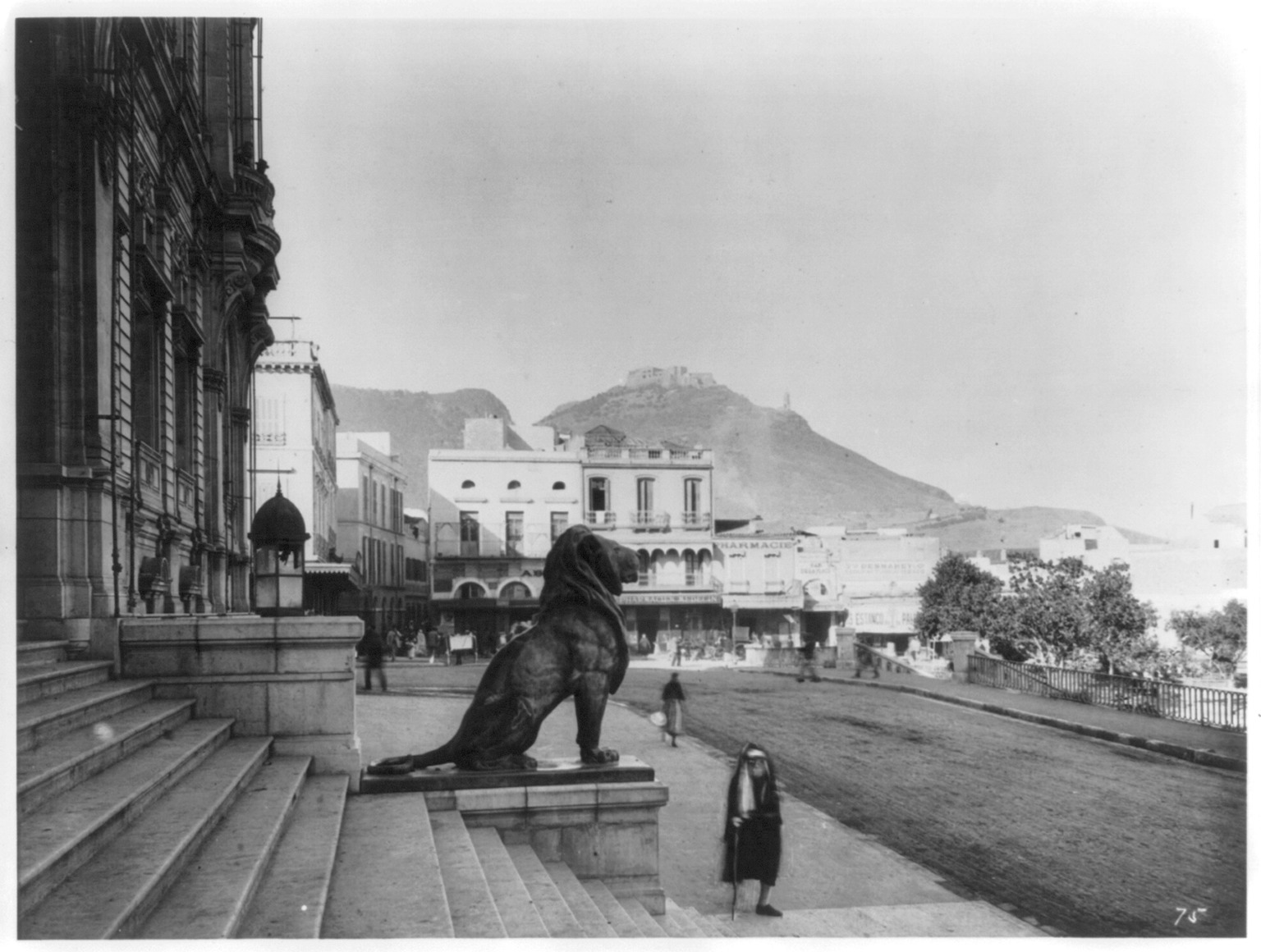First and foremost: this writing is spectacular. Pynchon’s ability to list goes over the top in all the right ways—right now I can’t think of a better lister, but some poets probably slip my mind. Let me just quote two lists here, out of this book:
She could, at this stage of things, recognize signals like that, as the epileptic is said to—an odor, color, pure piercing grace note announcing his seizure. Afterward it is only this signal, really dross, this secular announcement, and never what is revealed during the attack, that he remembers. Oedipa wondered whether, at the end of this (if it were supposed to end), she too might not be left with only compiled memories of clues, announcements, intimations, but never the central truth itself, which must somehow each time be too bright for her memory to hold; which must always blaze out, destroying its own message irreversibly, leaving an overexposed blank when the ordinary world came back.
The Saint whose water can light lamps, the clairvoyant whose lapse in recall is the breath of God, the true paranoid for whom all is organized in spheres joyful or threatening about the central pulse of himself, the dreamer whose puns probe ancient fetid shafts and tunnels of truth all act in the same special relevance to the word, or whatever it is the word is there, buffering, to protect us from. The act of metaphor than was a thrust at truth and a lie, depending where you were: inside, safe or outside, lost.These fantastic lists come hot and heavy throughout the book. It’s often a sentence, then four paragraphs of exposition of that sentence, then another sentence, rinse and repeat. I mean, if I talk about who this writing reminds me of, it’s Vonnegut, Eco, and Nabokov. And that’s some heady space to be in for my personal pantheon of great writers.
Another thing the writing does well is showing instead of telling — Pynchon never says she’s pretty, but every man around her wants her.
(But the flipside of the writing is me: I am personally sick of books like this. This writing is what every writing program I’ve experienced or heard of tries to train students to ape. And by this stage of my life and this type of writing, I’m a bit sick of it. I know this one is foundational and this is one of the pioneers and this is part of the reason everybody wants to write like this, but now, 53 years later, it’s been done, and I find it more groundbreaking when somebody tells me something really well. That’s just me today though, and I’ll try to put myself in the mindset of this being groundbreaking because I believe it was.)
The storytelling seems based on detective fiction. In one sense this shows the lady in red doing her own investigation. In another sense, this could be more of a hero’s journey because she changes more than the typical private eye does. On another hand this clearly shows a woman whose men run her life, changing to a woman who runs her own life. Yet one other probably valid interpretation shows a series of absurd scenes with little tying them together except an investigation into a conspiracy or secret society. But this varied book full of examples where meaning fails could also be an extended metaphor of a life. She starts off alone and bored and dependent on others—if there isn’t a better description of a baby, I don’t know. Baby can’t communicate or understand, can’t entertain or sustain itself. Then the teenage years of a hot car, a band, and a fling with an older man land her in the most happening place ever, LA. Then the dark underbelly of LA rears its head in the crazies, and she has a choice: either continue to ignore what probably ain’t true, or investigate it for truth. (That seems to be mostly what drives her, truth-seeking, and where she ends up shows Pynchon questioning whether that should drive her.) Then the sunset of life as the connections surrounding her slowly fall away: her lover leaves her for a younger woman, her husband loses his mind, and everybody around her disappears or dies. It’s like she’s going through a whole life in this book, birth to death. And this god-like figure, this ex-lover, the book stops just before she learns whether he is still alive or is actually dead.
This storyline allows Pynchon plenty of space to talk about California culture in the 60s, America during the McCarthy era of the Cold War, death and the choices people make that lead to it, the weight of personal connections in the free-love era, conspiracies and secrecy, etc—more themes than Pynchon can really deal with in the space the book takes up. If there is a central theme, I’d be guessing to try and come up with it. Maybe it’s a question of what we spend our lives focused on and how those things arrive through accident, coincidence, and effort. In other words, Obsession. Every character in here is a study in obsession. Stamp collecting, kinky London stuff, the death of inventing, entropy of communication, having been a child actor, etc.
But the quarter of me with reservations starts to notice that this book may be too open-ended for me to want to reread it again and again. The writing astounds me, and the humor helps ease my way through the book, but it could also be exemplified by the obscure references of the title, it may be a touch clever for clever’s sake—in that way I’m like the director, pissed off at every grad student trying to wring too much meaning out of every little phrase. “Shall I project a world?” Pynchon questions. Ugh, I answer. Too much, bro. My personal experience with writing programs bores at somebody else trying every tactic ever used in writing, and coming up with a bit of an unfocused mess.
“You don’t understand,” getting mad. “You guys, you’re like Puritans are about the Bible. So hung up with words, words. You know where that play exists, not in that file cabinet, not in any paperback you’re looking for, but—” a hand emerged from the veil of shower-steam to indicate his suspended head—“in here.”So, I’m torn. On the one hand I love this book. This is near the heights of the genre of writing I call “Literary”, especially in this post-modern era that questions the natures of truth and futility. Well worth the read. On the other hand, while I’m glad I read it a few times—re-reads certainly helped me appreciate the quality of the writing and the potential central metaphor of a life lived—I’m more glad I don’t have to read it again. I like the unknown in writing, I really do. But there may be just a little too much unknown here for what the authors seems like he was trying to do. Or maybe it’s too short to delve into the themes effectively. Or maybe that’s just me being too stupid to put this book on the top shelf, next to Vonnegut and Eco and Nabokov. It’s just too easy to pull any random quote out of this book and argue that it’s all about that quote, like the last one:
“I came," she said, "hoping you could talk me out of a fantasy."I do want to mention that this seems in a similar vein to Kafka, Borges, Eco, Joseph Heller, DFW, Vonnegut, Nabokov, and others like that.
“Cherish it!" cried Hilarious, fiercely. "What else do any of you have? Hold it tightly by it's little tentacle, don't let the Freudians coax it away or the pharmacists poison it out of you. Whatever it is, hold it dear, for when you lose it you go over by that much to the others. You begin to cease to be.”








































